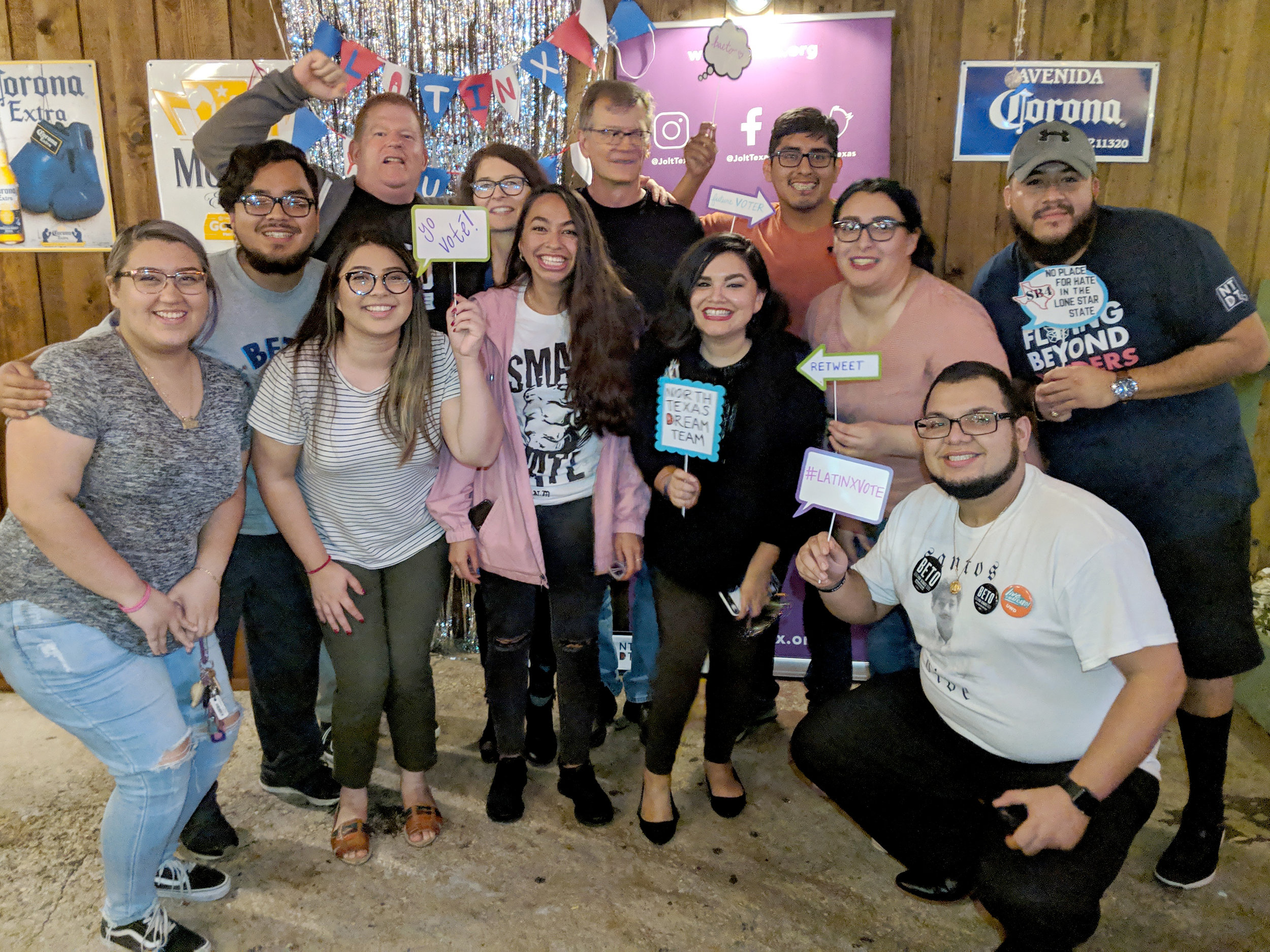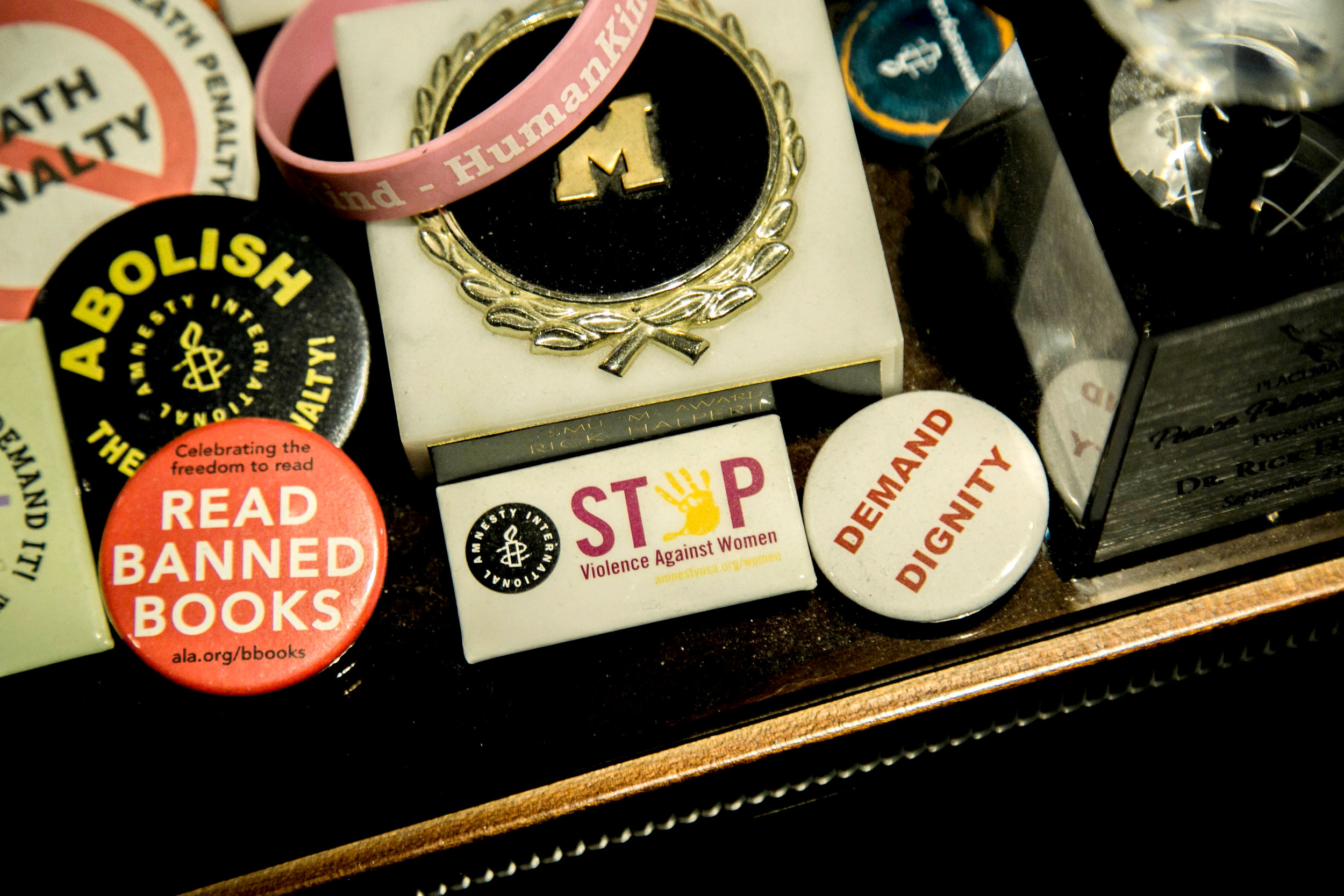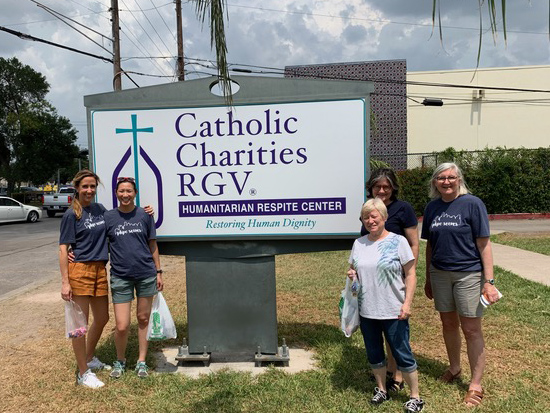Interviews by Mary Martin.
As the immigration crisis grows, leaders in Dallas are on the ground addressing human rights, providing legal representation, and showing up in practical ways for asylum seekers. Dallas Doing Good is committed to providing a platform that shares the voices of nonprofit luminaries who are working for the benefit of our entire community. We reached out to four leaders on the front line of this pressing issue asking them about what they have experienced, what they would change, and where they are finding hope.
Bill Holston, Executive Director, Human Rights Initiative of North Texas
How are you responding to the current crisis among asylum seekers?
I’ve represented asylum seekers for 30 years. And I don’t do that because I have pity for them—I’ve realized how extraordinary these people are, how enthusiastic they are about coming to the US, and how thoroughly they believe in our freedom. It’s a rude awakening for them when they encounter hostility because they have a very high opinion of the United States and what we stand for. Asylum seekers totally understand what it means to have freedom of religion and freedom of political expression and freedom of the press—they know that because they’ve experienced the absence of it. And that’s actually been very inspiring for me, because, like most of us, I take all of those rights for granted. But I don’t as much anymore. When I go to church on Sunday morning I’ve thought “there are people who have been locked up for this.” And I’ve been to protest marches; there are no soldiers shooting into this crowd and I’m not being arrested. I have written letters to the editor and I won’t lose my job. I’m not really at any risk. I know a lot of people who have been imprisoned and beaten and tortured because of those things. So when I hear asylum seekers maligned, and I am told that this is a scam and these people are here to access our free benefits, I don’t know what you’re talking about.
You know how many times I’ve been asked by a person when they won asylum case how they can access welfare? Zero. Not once in 30 years. I’ve been asked many many times, “When can I get my work authorization?” We’ve had many clients that won their asylum cases who immediately signed up for the American military because they feel this sense of gratitude to the country and feel a sense of urgency about serving the country.
What changes would you like to see in our immigration system as it is now?
Abolish ICE is a catchy slogan but not a very nuanced public policy argument. I think the whole Department of Homeland Security is something we created for this eternal war on terror and we should reevaluate that at some point. We should rethink whether or not we need this highly militarized group of law enforcement.
We need something—there really are bad people. We have had clients who have been victims of domestic violence here in the United States by somebody who is unauthorized here and they have been convicted of crimes and deported. And I’m fine with that kind of deportation. I don’t think everyone should get to stay here. But I don’t think a mother who overstayed her visa, or had a cracked license plate, or some technical violation of her immigration status needs a SWAT team showing up at her apartment and arrest her and haul her off with this group of heavily armed operatives.
And in addition to that, if I were king of the world, I would address the fact that the immigration judges now are not purely independent—they are part of the executive branch. They are employees of the Department of Justice and subject to political influence. That’s not an independent judiciary. If they were Article I or Article III judges they would be truly independent of the executive branch. The second thing I would address is the increased use of detention. The Obama administration was sued over the detention of families because these family detention centers have never been a good idea. You should not have children in jail-like conditions—no one thinks that’s a good idea. And for the people who don’t care about people but care about taxes, it is really expensive! There are so many other more effective and less expensive options. There are family management plans with case managers that walk with people through this kind of situation.
What is bringing you hope?
My hope is in the long term change. I have real hope in the next generation who really believes in these ideals. As marginalized communities, and young people, and women come into positions of power, we are going to return to the country that we say we are. I think that’s what it’s going to take, because people from my generation have lost their way.
A couple other positive things I see going on – there’s a much more vigorous collaboration between those of us that are advocates. All of the legal services collaborate with each other, like Catholic Charities and Raices. We meet together and share resources, joint trainings, and encourage each other. I’ve never seen that before and I think it took something like this to bring us all together.
Angelica Elizabeth Andrade Martinez, Community Outreach Coordinator, North Texas Dream Team
Photo courtesy of North Texas Dream Team.
How did the DREAM Team begin here in Dallas and what does it look like today?
The North Texas Dream team started as a group of students in 2008, about 90% undocumented, who just needed a space to share their testimonies. A lot of empowerment came through realizing our intersectionalities. Some of us come from mixed households where family members are citizens, others undocumented. It simply became a safe space for everyone.
Out of that came a team approaching other organizations and taking a stand for the DREAM act but we didn’t receive a lot of support. I have the privilege of being born on this side of the border so life has been easier for me than it was for my father who was deported. It was easy for me to go into these spaces, but I found even groups that claimed to be supportive of the immigrant community were not; they said it was not the right time. It was so disappointing. We came to a consensus to create our own advocacy organization. We protested and led hunger strikes. We empowered each other and pushed for DACA. One of our own members was arrested. Undocumented people risked deportation, and were risking their lives to demand DACA.
That same energy, nearly a decade later, is still there. We are wanting immigration reform for all. Now we see high school students joining us – many who have found that they are undocumented when they go to get their drivers’ license. The fight is still there. There is so much work to do for everyone in the immigration space, but when I talk to families who are seeking asylum, there is this hope. They share their journey with you and speak about how horrible the detention centers are, and they still have hope.
What reforms do you want to see first in the immigration system?
We need to reassess what crime really is, and address detention centers, mass deportation, and mass incarceration. We have so many people incarcerated in the US that we are prime real estate for detention centers. Huge real estate companies come and bid on land, even leg monitors, medical services, and food—which is all tied into a capitalistic market. And these development companies are making campaign contributions to people in political power and toward their campaigns. Prison system reform is crucial. We need to see people as human again.
Where have you seen the community coming together around this cause?
I’ve been organizing for ten years, but in 2017 North Texas Dream Team started intentionally working with all communities—our Muslim community, our black community, our LGBTQ+ community. I have the experience of being queer and Latinx and it used to be that if you went somewhere and it had anything to do with immigration, it was majority Latix, but now everyone is there. It is not just the people who are directly affected. If one of us ain’t free, none of us are. Our liberation is found in each other’s.
Photo by Hunter Lacey.
Dr. Rick Halperin, Director, Embrey Human Rights Program, SMU
How does the broader human rights cause illuminate the immigration crisis at the border?
I would certainly say this is a crisis. There is little to no recognition that seeking asylum is a human right. People have a right to flee persecution and, at least, present their claims to a judge to be adjudicated and see if their claims are valid for asylum. Instead people are being seen as lesser because of who they are or because of their home country.
If you could change one facet of the immigration crisis, where would you start?
All of human rights is a human rights education issue. I don’t think people can demand or defend their human rights if they do not know what they are. In all countries, but especially this one, there is no culture of human rights. When we think of human rights it is someone else’s problem—China, North Korea, Iraq—the issues are outside and different than ourselves.
Every country has human rights issues problems; human rights begin at home. We have to look at ourselves and who we are as a people and our commitment to human rights here and around the world. This includes education of judges in human rights; these are people who are determining another person’s fate. I think it’s the biggest single moral failure for our young people who will be the new leaders, the judges and lawyers, if they are not educated specifically in human rights.
Where do you see hope turning up?
I see the hope every day in my classes. We do educate in human rights and we have students who are in law school and have finished grad school who are ready to make a difference. I think the positive future of change is closer than it appears.
Also, these issues are not new. In the mid 1980’s Texas set up Rio Grande watch committees. There were upwards of 15,000 people on this side of the river being deported without hearings—women and children separated. But I do think we can stop it from happening again. With the onset of technology and photographs more people are awakened to the horror of what is happening.
Rev. Kathy Lee-Cornell, LMSW, Associate Pastor, Preston Hollow Presbyterian Church
Photo courtesy of Preston Hollow Presbyterian Church
As you have spent time organizing the faith community on behalf of asylum seekers, what have you seen first-hand?
I recently returned from a trip to Brownsville with a small group from my church. We visited the McAllen Humanitarian Respite Center, the Federal Courthouse where asylum seekers are criminally charged for illegal entry, and crossed the bridge to Matamoros, Mexico where Oscar and his young daughter, Valeria, died attempting to step foot onto U.S. soil to ask request asylum. It’s incredibly heartbreaking to see such large groups of people in need of support, resources, safety and refuge who are treated with such an inhuman inhumane process.
If you could make one change in the immigration crisis today, what would it be?
On my trip, I saw people being denied access to even attempt an internationally recognized process of seeking asylum when their lives are in danger. Instead of pouring out the tremendous amount of resources that we do on border patrol and detaining innocent people, my dream and hope would be for that same amount of resources to go into actually addressing the needs that people are coming to our country with—by creating a better asylum seeking process, increasing the capacity of immigration courts, USCIS, resettlement agencies, and other supportive organizations who have been doing this type of work for a long, long time.
Where are you finding hope as you reach out to the community?
In Dallas, it has given me so much hope to see the outpouring of love and support by the faith community for migrants and refugees. I had the privilege of joining a team of welcoming a bus from El Paso with 57 parents and children who were recently released by ICE. Their sense of relief in meeting our group, knowing that we were there to help and not to harm, cannot be adequately described. The opportunity to welcome this one bus brought together over 300 volunteers who stepped up and were willing to give of their time, talents, and treasures to reflect what I feel are the values that bind all faith traditions together — that everyone is deserving of safety and love.
If you know someone who is Doing Good in Dallas, we’d love to hear about it! Share their story with us.


